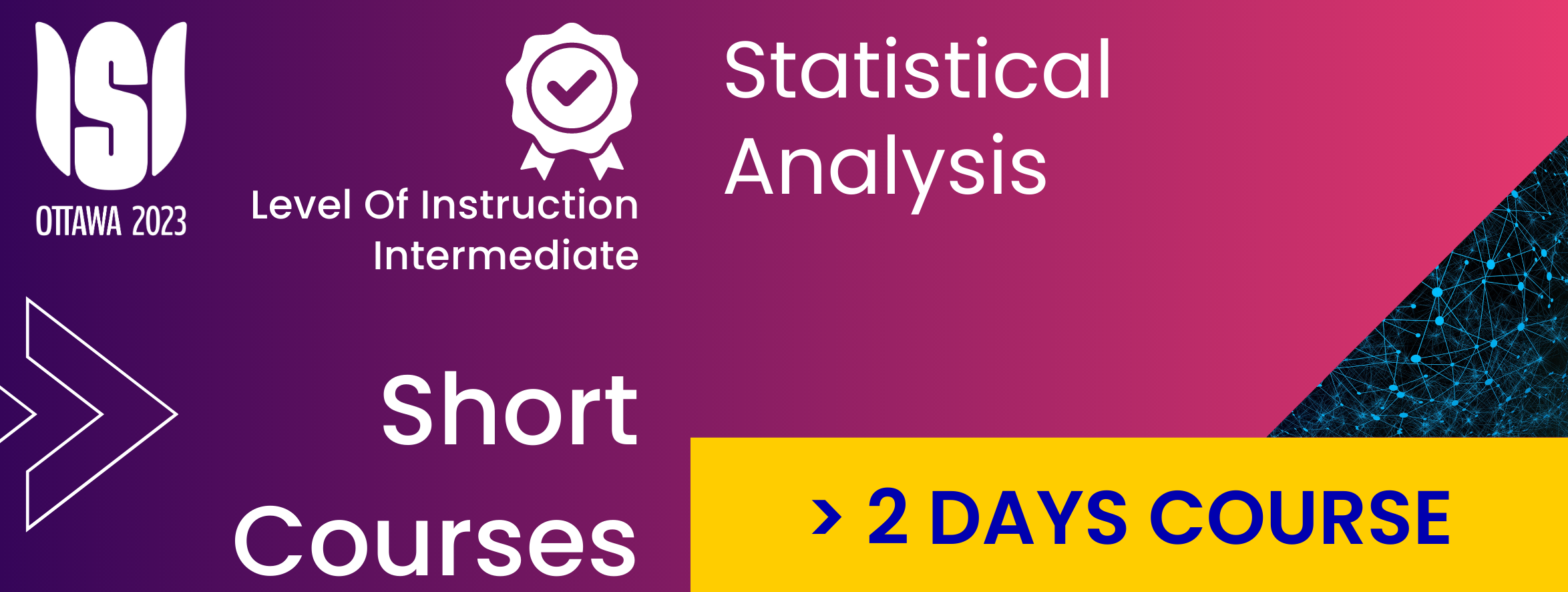Statistical Analysis of Social Networks
Instructor: Johan Koskinen
July 14, 2023 - July 15, 2023
This conference is currently not open for registrations or submissions.
About the Short Course: 2 Days Course
Network data are ubiquitous in fields ranging from neuroscience and technology to the social sciences and public health. This course is a rapid introduction to the statistical modeling of social networks. It covers advanced statistical network models for cross-sectional network analysis, network dynamics, dynamic processes on networks, and causal inference in a network setting. We will also discuss open problems in methodological network research, to bring participants with a working knowledge of network modeling close to the research frontier.
Emphasis will be on the statistical methodology and concepts, but we will also touch upon the applicability of the discussed models. During the course, we will cover a wide range of statistical network models, including various conditional independent dyad models (e.g., stochastic block models, social relation models), exponential family random graph models, and stochastic actor-oriented models. We will discuss causal effects under network interference in the potential outcomes framework.
In-Person Event. Location Of Short Courses: University of Ottawa
Who is this course for?
The course is relevant to anyone with interest in Social Network Analysis. Previous training and experience in basic statistical modeling are required, and a working knowledge of the software environment R is an asset for those who want to follow along with the practical parts of the course. The course assumes participants have basic training in statistical modelling and inference.
Level Of Instruction: Intermediate
Learning Outcomes
Upon completion of the course, students will
• Be able to describe and apply the basic concepts that underlie mathematical network theory;
• Be able to use statistical network models and interpret their results;
• Now the advantages and limitations of these models;
• Have an understanding of open problems in statistical network research.
Course Materials
Course materials will consist of slides with teaching material, R-scripts, example datasets, and a selection of introductory texts and journal articles. The material will be hosted on a website that can be accessed by participants.
Delivery Structure
The course will be delivered through a combination of lectures, labs, and discussions. Participants will have the opportunity to apply the methods they learned in exercises in R. The exercises will be provided in the form of prepared notebooks and real-world social network datasets.
About the instructor: Johan Koskinen
PhD Johan Koskinen is Lecturer in Statistics at Stockholm University, having previously held positions at the Universities of Melbourne, Oxford, and Linkoping. He develops statistical models and inference for social networks and often works in close collaboration with subject area experts to infer underlying network processes for empirical data, preferably within a Bayesian framework.
At Melbourne he was the director of the Social Networks Lab, leading a number of applied and methodological network projects, and at Manchester he was a member of the cross-disciplinary Mitchell Centre for Social Network Analysis. Together with colleagues in Melbourne he edited the 2013 book on Exponential Random Graph Models, which was awarded the Harrison White Book Award. He has contributed to the publicly available programs MPNet and RSiena, and has been active in delivering training in network analysis across the world. Of particular interest to him, is imperfectly observed network data and computational methods for networks on different types of ties and nodes, in space and across time.
Affiliations: Stockholm University and University of Melbourne
This conference is currently not open for registrations or submissions.
